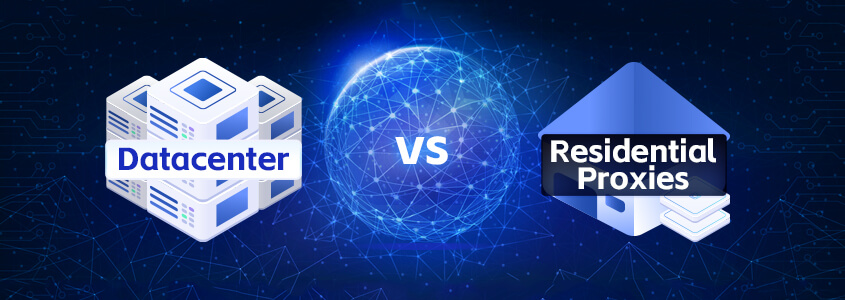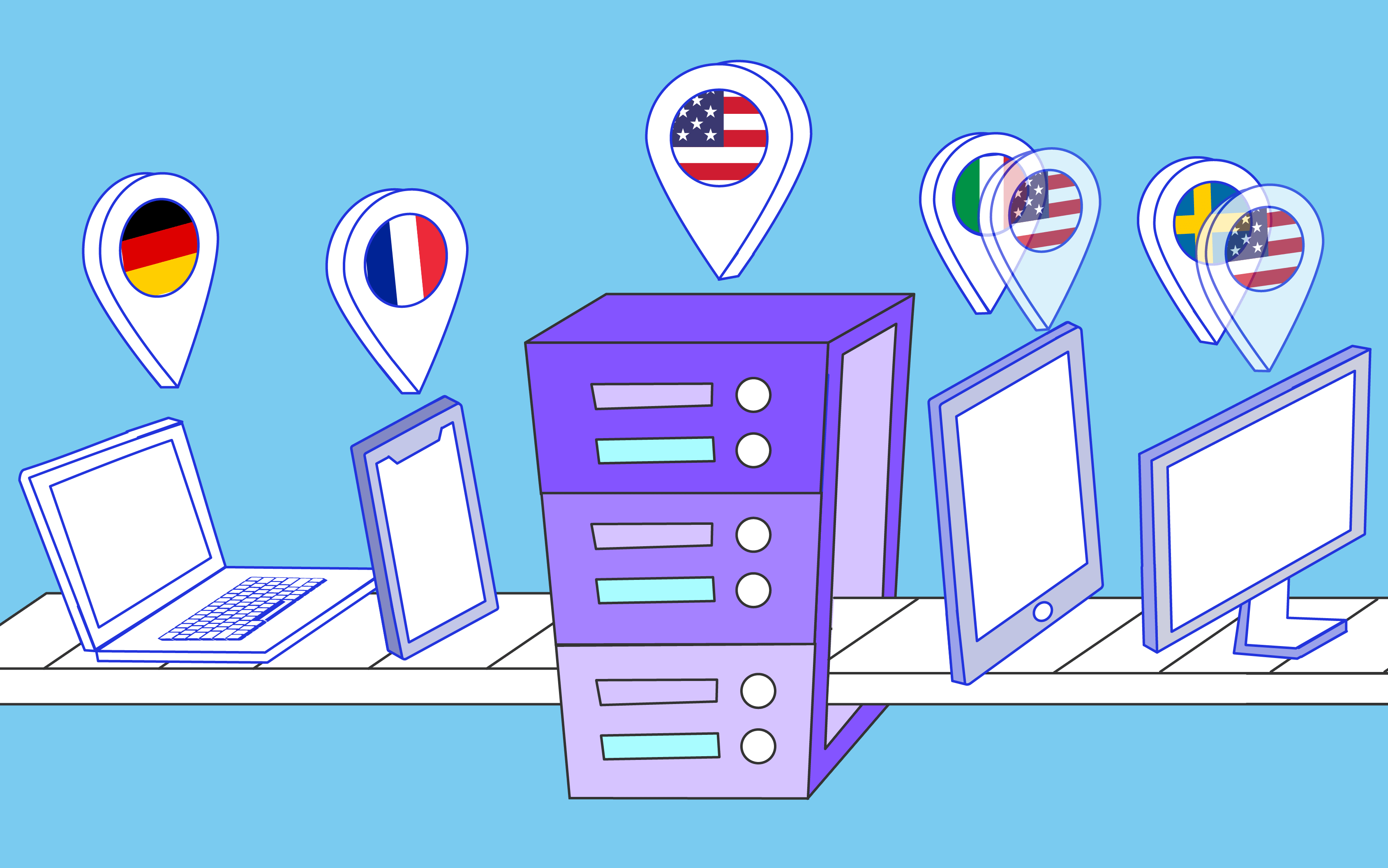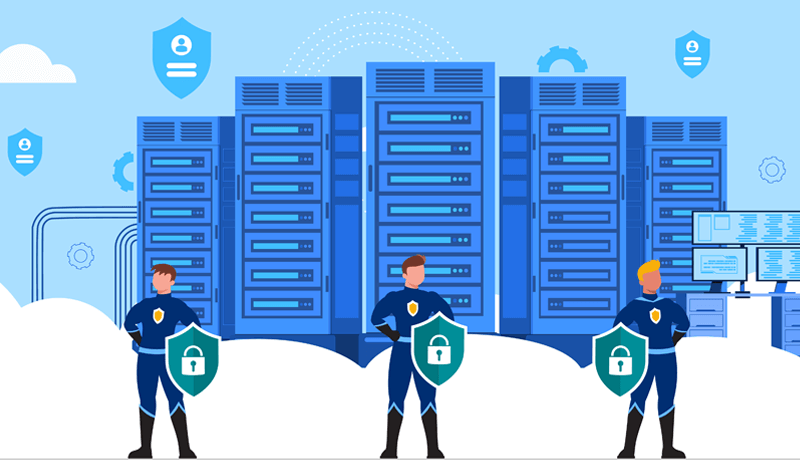
- Product

- Pricing
- Affiliate Program
- Use Cases
- Resource


In today's digital age, ensuring your online security is of utmost importance. This is where residential and data center proxies come into play, safeguarding your identity and personal information. However, the question arises - which type of proxy provides superior security?
In this article, we delve into the comparative analysis of residential versus data center proxies, highlighting their distinct features, advantages, and drawbacks. You'll have a comprehensive understanding of the better proxy choice for bolstering your online security.
An IP (Internet Protocol) address is a unique numeric identifier assigned to every device that communicates over the Internet. It is like a unique digital ID card that allows network devices to interact with each other.
IP addresses can be broadly divided into two categories: data center IP addresses and residential IP addresses.
Data center IP addresses refer to unique identifiers assigned to each machine within a data center. These servers host a large number of websites, applications, and services. Data center IP addresses are static, meaning they remain the same over time and are often preferred by businesses and organizations due to their reliability and high bandwidth.
Residential IP addresses mean that assigned to home users by Internet Service Providers (ISPs). It is associated with a physical location and is typically dynamic, changing over time.
 Are Residential Proxies Better Than Datacenter Proxies?
Are Residential Proxies Better Than Datacenter Proxies?Data Center IP Address |
Residential IP Address |
|
Advantages |
|
|
Disadvantages |
Data Center Proxies VS residential proxies, shared data center proxies offer less anonymity and are often overloaded, resulting in inferior performance than dedicated proxies. |
But they are static, which means they do not change over time. |
Anonymity |
Medium, easy to detect |
High, difficult to detect |
Speed |
Fast |
Slightly slower |
Cost |
Low |
High |
Provider |
Data center |
ISP |
When it comes to choosing between residential vs data center proxies, it is important to understand the differences between them. Residential proxies are IP addresses assigned to a specific user or device at home or work. These addresses are more legitimate than those found in a data center, which many users may share.
With a residential proxy, there is also a greater range of locations to connect. This makes them ideal for tasks like collecting data and online advertising campaigns.
On the other hand, data center proxies provide access to more servers and can be used for larger tasks. They are also generally cheaper than residential proxies, making them an attractive option for businesses on a budget. However, their legitimacy is often questioned since they sometimes represent a real person or organization.
Datacenter proxies are a popular choice with less expensive prices.
One key difference between these two IP types is that residential IPs are associated with a physical location or a specific user, while datacenter IPs have no such association. Therefore, residential IPs provide enhanced privacy and security.
Additionally, datacenter IPs can be used for more advanced tasks, such as web scraping and accessing APIs, while residential IPs are more limited in the activities they support.
Static Residential Proxy and Rotating Residential Proxy are two types of residential proxies. Static Residential Proxy is a dedicated IP address that remains the same over time, while the Rotating Residential Proxy rotates the assigned IP address after a certain amount of time.
Residential IP Proxies have become increasingly popular among businesses, marketers, and data mining companies due to their high level of anonymity and security. Here are some of the most common applications for Residential IP Proxies:
Residential IPs provide a reliable and secure way to collect large amounts of data from various online sources for research purposes or market analysis.
Price Aggregators such as Price2Spy, PriceSpider, and PriceAPI use Residential IPs to gather accurate information on product prices from different websites.
Using Residential Proxies allows marketers to access more social media accounts without getting flagged as a bot or blocked. This helps them save time and reach more potential customers.
Companies often need to check the accuracy of their ads across different platforms. Residential Proxies help them do this quickly and efficiently by allowing them to crawl through different websites without getting blocked.
Businesses can use Residential IPs to perform local SEO to increase their visibility in search results for their particular area or region.
Datacenter proxies are a popular choice for businesses and individuals that need to increase their online security and privacy. These proxies are hosted on remote data center servers, providing users with a more secure connection than traditional residential IPs.
Datacenter proxies have a wide range of applications, including:
Datacenter proxies offer enhanced security features and can protect you from malicious actors. They can also mask your identity and protect your browsing activities from being tracked by third parties.
By masking your IP address, data center proxies can help keep your identity anonymous while you browse the web. This can be useful if you want to stay private while browsing sensitive sites like adult websites or dark web markets.
Organizations and researchers often use data center proxies to collect large amounts of data quickly and efficiently. These proxies can scrape website data, monitor market trends, and analyze competitor pricing.
Datacenter proxies can be used to verify online ads before they are released. This is especially important for organizations that want to ensure that their ads comply with industry standards.
Datacenter proxies can also perform performance tests on websites and web applications. This is an important step in ensuring that websites run smoothly and provide a great user experience.
 How to Set Up a Residential Proxy Server?
How to Set Up a Residential Proxy Server?To enhance your data security, establishing a residential proxy server can be a wise decision. Residential proxies shield you when you're interacting with websites and applications, disguising your IP address and making it difficult for ill-intentioned individuals to track you.
Setting up a residential proxy service with a trustworthy provider such as MoreLogin is a swift process. MoreLogin is a secure platform with robust fingerprinting technology, safeguarding user data from malicious services.
It offers a wide array of Antidetect services with powerful residential IPs across the globe. This allows you to browse the web incognito and gain access to geo-restricted content.
MoreLogin also ensures your data stays encrypted during transit, thus providing a secure internet experience. Their residential proxies come with multilayered security measures, thus further enhancing your privacy and data protection.
MoreLogin offers a centralized platform to manage all your accounts with custom settings and tracking facilities. With MoreLogin, you can effortlessly set up a proxy service, ensuring that your data remains safe and secure.
Conclusion
When choosing between residential vs data center proxies, the answer depends on your particular needs. Residential IP proxies provide more reliable connection speeds, privacy, and security when you need web access from outside your country. On the other hand, data center proxies are better for web scraping, creating multiple accounts, and online gaming.
While both proxies have advantages and disadvantages, Morelogin offers a secure solution for setting up a residential proxy server. It is easy to use and provides reliable speed, privacy, and anonymity. It is also cost-effective and provides an extensive network of global proxy servers.